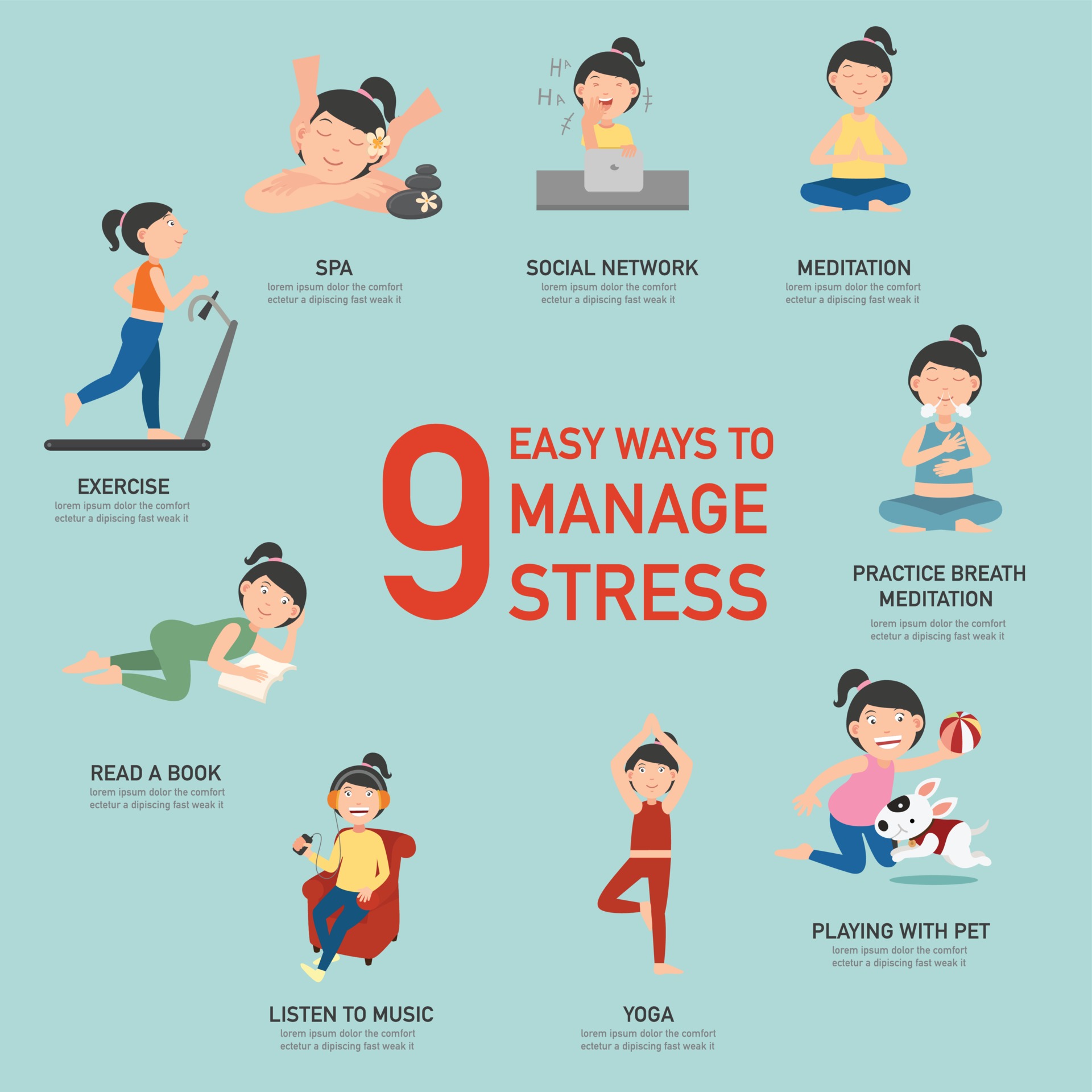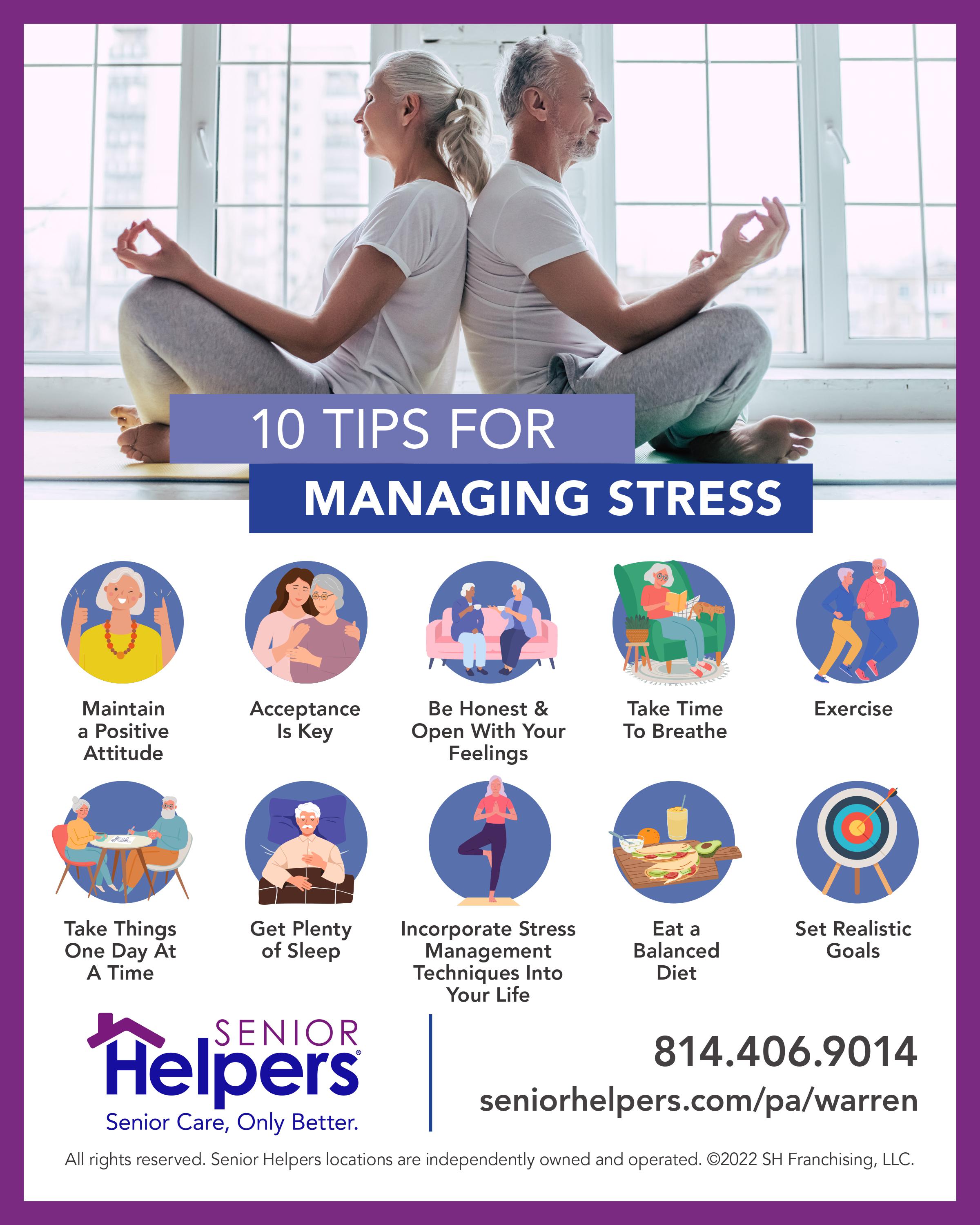“Healthy Ways to Manage Stress: A Comprehensive Guide
On this special occasion, we are delighted to explore the fascinating topic of Healthy Ways to Manage Stress: A Comprehensive Guide. Come along as we weave together engaging insights and offer a fresh perspective to our readers.
About Video Healthy Ways to Manage Stress: A Comprehensive Guide
Healthy Ways to Manage Stress: A Comprehensive Guide

In today’s fast-paced world, stress has become an almost unavoidable part of life. From work deadlines and financial pressures to relationship challenges and global uncertainties, stressors bombard us from all angles. While a little stress can be a motivator, chronic or overwhelming stress can take a significant toll on our physical, mental, and emotional well-being.
The good news is that stress doesn’t have to control your life. By adopting healthy stress management techniques, you can regain control, build resilience, and live a more balanced and fulfilling life. This comprehensive guide explores a variety of effective strategies to help you manage stress and improve your overall quality of life.
Understanding Stress: A Brief Overview
Before diving into stress management techniques, it’s essential to understand what stress is and how it affects us.
-
What is Stress? Stress is the body’s natural response to any demand or challenge. When faced with a stressor, the body releases hormones like cortisol and adrenaline, triggering the "fight-or-flight" response. This response is designed to help us cope with immediate threats by increasing heart rate, blood pressure, and energy levels.
-
Types of Stress: Stress can be categorized as acute or chronic.

- Acute stress is short-term stress that arises from specific events or situations, such as a job interview or a traffic jam. Once the event passes, the stress typically subsides.
- Chronic stress is long-term stress that persists over an extended period. It can result from ongoing problems like financial difficulties, relationship issues, or a demanding job. Chronic stress can have serious health consequences if left unmanaged.
-
The Impact of Stress: Chronic stress can manifest in various ways, affecting physical, mental, and emotional health.
- Physical Symptoms: Headaches, muscle tension, fatigue, digestive problems, sleep disturbances, weakened immune system.
- Mental Symptoms: Difficulty concentrating, memory problems, irritability, anxiety, depression, racing thoughts.
- Emotional Symptoms: Mood swings, feeling overwhelmed, sadness, anger, frustration, a sense of hopelessness.

/3145195-article-tips-to-reduce-stress-5a8c75818e1b6e0036533c47.png)
Effective Stress Management Techniques
Here are some evidence-based strategies to help you manage stress effectively:
1. Practice Mindfulness and Meditation
Mindfulness is the practice of paying attention to the present moment without judgment. Meditation is a technique that helps you train your mind to focus and calm your thoughts. Both mindfulness and meditation can reduce stress, improve focus, and promote emotional well-being.
-
How to Practice Mindfulness:
- Mindful Breathing: Focus on your breath as it enters and leaves your body. Notice the sensations of each inhale and exhale.
- Mindful Walking: Pay attention to the sensations of your feet making contact with the ground as you walk.
- Mindful Eating: Savor each bite of food, paying attention to the taste, texture, and aroma.
- Body Scan Meditation: Systematically bring your attention to different parts of your body, noticing any sensations without judgment.
-
How to Meditate:
- Find a Quiet Place: Choose a quiet and comfortable location where you won’t be disturbed.
- Sit or Lie Down: Sit in a comfortable position or lie down.
- Focus on Your Breath: Close your eyes and focus on your breath.
- Acknowledge Thoughts: When thoughts arise, acknowledge them without judgment and gently redirect your attention back to your breath.
- Start Small: Begin with 5-10 minutes of meditation per day and gradually increase the duration as you become more comfortable.
2. Engage in Regular Physical Activity
Exercise is a powerful stress reliever. Physical activity releases endorphins, which have mood-boosting and pain-relieving effects. Regular exercise can also improve sleep, boost self-esteem, and reduce symptoms of anxiety and depression.
-
Types of Exercise:
- Cardiovascular Exercise: Activities like running, swimming, cycling, and dancing can elevate your heart rate and improve cardiovascular health.
- Strength Training: Lifting weights or using resistance bands can build muscle strength and endurance.
- Yoga and Pilates: These practices combine physical postures, breathing techniques, and meditation to promote relaxation and flexibility.
-
Tips for Incorporating Exercise:
- Set Realistic Goals: Start with small, achievable goals and gradually increase the intensity and duration of your workouts.
- Find Activities You Enjoy: Choose activities that you find fun and engaging to make exercise more sustainable.
- Make it a Habit: Schedule regular exercise sessions into your calendar and treat them as important appointments.
- Incorporate Movement into Your Day: Take the stairs instead of the elevator, walk during your lunch break, or do some stretching exercises at your desk.
3. Practice Relaxation Techniques
Relaxation techniques can help you calm your mind and body, reducing the physical and emotional effects of stress.
-
Deep Breathing Exercises: Slow, deep breaths can activate the body’s relaxation response, lowering heart rate and blood pressure.
- Diaphragmatic Breathing: Place one hand on your chest and the other on your abdomen. Inhale deeply through your nose, allowing your abdomen to expand. Exhale slowly through your mouth, contracting your abdominal muscles.
- Box Breathing: Inhale for a count of four, hold for a count of four, exhale for a count of four, and hold for a count of four. Repeat this cycle for several minutes.
-
Progressive Muscle Relaxation: This technique involves tensing and relaxing different muscle groups in your body to release tension.
- Starting with Your Feet: Tense the muscles in your feet for a few seconds, then release.
- Moving Upward: Gradually move up your body, tensing and relaxing each muscle group, including your calves, thighs, abdomen, chest, arms, and face.
-
Autogenic Training: This technique involves using mental imagery and self-suggestion to promote relaxation.
- Focus on Sensations: Repeat phrases like "My arms are heavy and warm" or "My breathing is calm and regular" to induce a state of relaxation.
4. Cultivate Social Connections
Social support is a crucial buffer against stress. Connecting with others can provide emotional support, reduce feelings of isolation, and boost your overall well-being.
- Spend Time with Loved Ones: Make time for family and friends who make you feel good.
- Join a Social Group: Participate in activities or groups that align with your interests, such as a book club, sports team, or volunteer organization.
- Seek Support from a Therapist or Counselor: If you’re struggling to cope with stress on your own, consider seeking professional help.
5. Prioritize Sleep
Sleep deprivation can exacerbate stress and impair your ability to cope with challenges. Aim for 7-9 hours of quality sleep per night to support your physical and mental health.
- Establish a Regular Sleep Schedule: Go to bed and wake up at the same time each day, even on weekends.
- Create a Relaxing Bedtime Routine: Engage in calming activities before bed, such as reading, taking a warm bath, or listening to soothing music.
- Optimize Your Sleep Environment: Make sure your bedroom is dark, quiet, and cool.
- Avoid Stimulants Before Bed: Limit caffeine and alcohol consumption in the evening.
6. Practice Time Management
Feeling overwhelmed by tasks and responsibilities can contribute to stress. Effective time management can help you prioritize, organize, and accomplish your goals, reducing feelings of overwhelm.
- Set Realistic Goals: Break down large tasks into smaller, more manageable steps.
- Prioritize Tasks: Use a to-do list to identify and prioritize the most important tasks.
- Delegate When Possible: Don’t be afraid to ask for help or delegate tasks to others.
- Avoid Procrastination: Tackle tasks promptly to prevent them from piling up and causing stress.
- Take Breaks: Schedule regular breaks throughout the day to rest and recharge.
7. Nurture Your Creativity
Engaging in creative activities can provide an outlet for self-expression, reduce stress, and boost your mood.
- Explore Your Interests: Try painting, drawing, writing, playing music, or any other creative activity that appeals to you.
- Set Aside Time for Creativity: Schedule regular time for creative pursuits, even if it’s just for a few minutes each day.
- Don’t Worry About Perfection: Focus on the process of creating rather than the end result.
8. Practice Gratitude
Gratitude is the practice of focusing on and appreciating the positive aspects of your life. Cultivating gratitude can improve your mood, reduce stress, and enhance your overall well-being.
- Keep a Gratitude Journal: Write down things you’re grateful for each day.
- Express Gratitude to Others: Tell people you appreciate them and their contributions to your life.
- Notice the Small Things: Pay attention to the everyday moments that bring you joy and satisfaction.
9. Limit Exposure to Stressors
Identify the sources of stress in your life and take steps to minimize your exposure to them.
- Set Boundaries: Learn to say no to commitments that drain your energy or add unnecessary stress to your life.
- Limit Social Media Use: Social media can be a source of comparison, negativity, and information overload.
- Avoid Toxic Relationships: Distance yourself from people who are consistently negative or draining.
10. Seek Professional Help
If you’re struggling to manage stress on your own, don’t hesitate to seek professional help from a therapist or counselor. A mental health professional can provide guidance, support, and evidence-based treatments to help you cope with stress and improve your mental health.
Conclusion
Stress is an inevitable part of life, but it doesn’t have to control you. By incorporating these healthy stress management techniques into your daily routine, you can regain control, build resilience, and live a more balanced and fulfilling life. Remember that stress management is an ongoing process, and it may take time to find the strategies that work best for you. Be patient with yourself, and celebrate your progress along the way.

